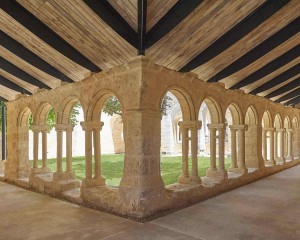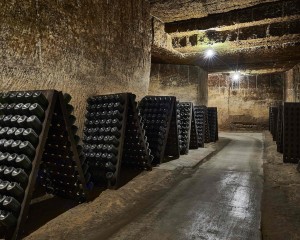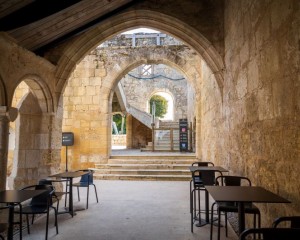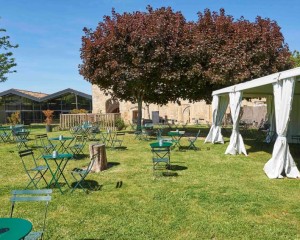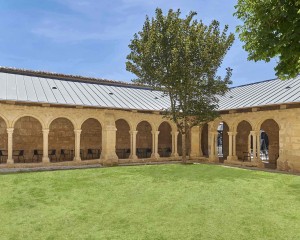The Franciscan order was founded on the initiative of St. Francis of Assisi in the 13th century.
It is an order focused on praying, preaching and begging. The Franciscans are better known in medieval France under the name "Cordeliers" because of the rope they used as a belt.
The arrival of the Cordeliers in Saint-Emilion goes back to the same time as that of the Dominicans in the early 13th century, marking the emergence of the mendicant orders in the region.
Their first convent, established outside the walls of the city, suffered during the 100 Years War oppposing the Kings of France to those of England, also known as Dukes of Aquitaine. It was not until the late 14th century that the Cordeliers finally received permission to build their new convent inside the city walls. The set consisted of a church, a cloister, a garden, a winery, a cellar, a courtyard and a main building.
The last present religious were expelled during the French Revolution and the convent was sold as national property in 1791. At that time, it was indicated as being in poor condition. In 2005, he was listed as a historic monument.
The entrance of this former convent, leads to the cloister which imposing ruins are remarkable: columns, capitals, bases and pedestals are monoliths. At the back, imagine the convent garden with vegetables and herbs replaced today by inviting chairs and tables to enjoy a sparkling cup accompanied by macaroons.
The single-nave church, gives access to the cellars dugged in the limestone rock at 17 meters depth. Tours of these quarries are proposed to discover the development of the famous "Crémant de Bordeaux". The tradition was perpetuated since the late 19th century when Mr. Meynot, hit by the poor sales of his wines, had the idea of transforming the wine of Saint-Emilion into champagne and went to study the process of making sparkling wine in the Champagne Area.
Today heaven of peace and relaxation, a historical guided tour of the site and cellars is offered. The estate also has a restaurant with a wine bar, offering wines from the glass or bottle, along with savory treats or sweets. Picnic food baskets and cold drinks are also available for sale.
Free access to the cloister garden and store every weekend and Christmas vacations. Annual closure from November to March of the outdoor bar and the guided tours of the cellars.
Access to the basement only with tours from April to late October.

Grand Saint-Emilionnais Tourist Office
Le Doyenné - Place des Créneaux
33330 SAINT-EMILION
Special opening hours!
Dear visitors,
During the holiday season, your tourist office will remain open:
Wednesday 24 December: 10:30am - 12:30pm / 2pm - 5pm
Thursday 25 December: CLOSED
Wednesday 31 December: 10:30am - 12:30pm / 2pm - 5pm
Thursday 1 January: 2pm - 5pm

